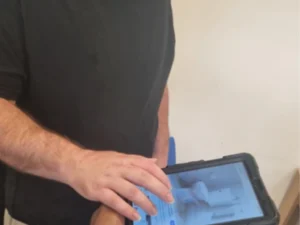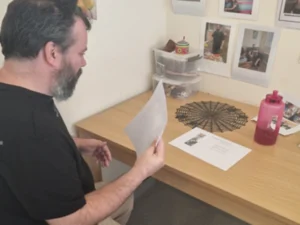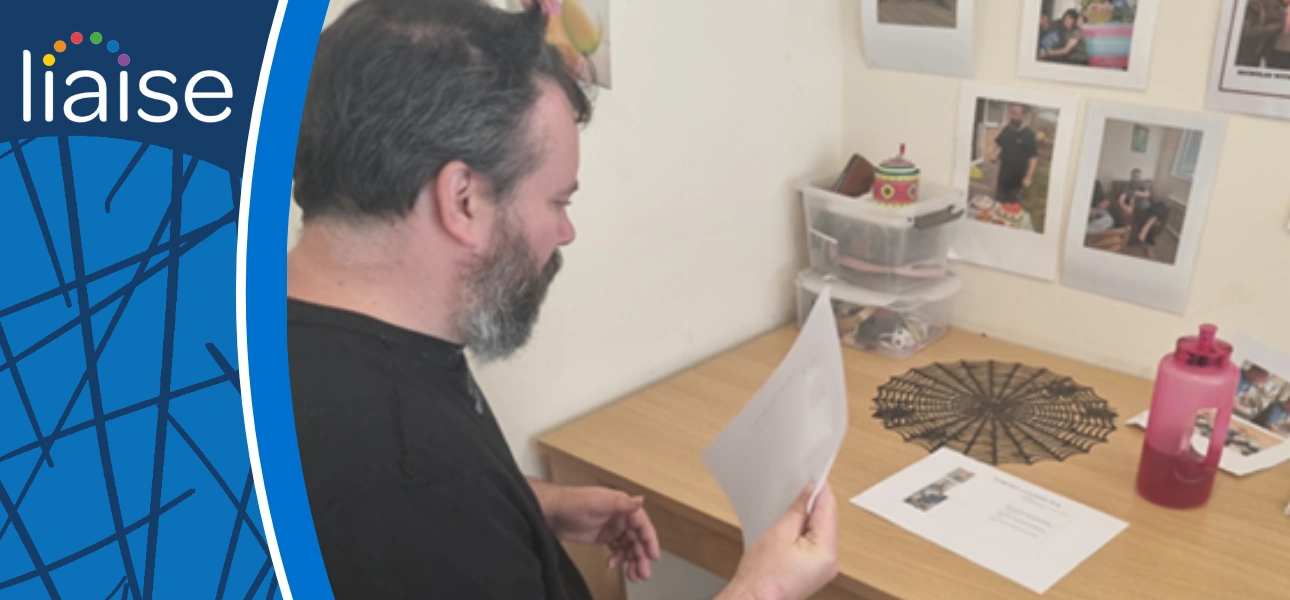Nicholas, who lives at Willow Tree Lodge, has been receiving tailored support to help him feel confident, safe, and in control of his environment. This story highlights how Liaise Outcomes Support helped Nicholas achieve a meaningful change in his home and improve his independence and wellbeing.
Making Choices with Liaise Outcomes Support
Nicholas has previously experienced anxiety that could lead to complex behaviours, which sometimes posed a risk of injury. Working closely with his care team, family, and healthcare professionals, a support plan guided by Liaise outcomes support was developed to reduce stress and increase predictability in his environment.
As part of this plan, Nicholas was involved in choosing a new, homely toilet and sink for his bathroom. By allowing him to make decisions about the design and style, the team provided a person-led approach that built confidence and independence.

Implementing the Change: Installation Day
On the day of the installation, Nicholas was supported to understand what would happen and offered alternatives while his new toilet was being fitted. This planning helped him feel safe and prepared, reflecting the principles of Liaise outcomes support, where predictability and choice are central to success.
Nicholas watched the workman install the toilet and remained calm throughout the process. Staff guidance and reassurance allowed him to experience the change positively, increasing his comfort and independence in his own space.

Outcomes Achieved Through Liaise Support
After the installation, Nicholas was able to use his new toilet independently, demonstrating the impact of Liaise outcomes support on confidence and everyday life skills. This small, practical change had a significant impact on his quality of life, helping him feel more in control and settled in his surroundings.
Nicholas’ progress aligns with the Outcomes Pathway Tool. Through his involvement, he has shown growth in key areas:
- Independence: Managing daily routines more confidently.
- Confidence and Emotional Wellbeing: Feeling secure and in control of his environment.
- Personal Choice and Engagement: Making decisions that directly impact his life
Celebrating Nicholas’ Success
Nicholas’ journey demonstrates how Liaise outcomes support enables meaningful change, even in everyday tasks like using a toilet. By combining staff guidance, family involvement, and structured planning, Nicholas has achieved a milestone that has enhanced his dignity, independence, and confidence.
This story highlights the power of person-led support and shows how small, thoughtful adjustments can have a lasting impact on quality of life.
